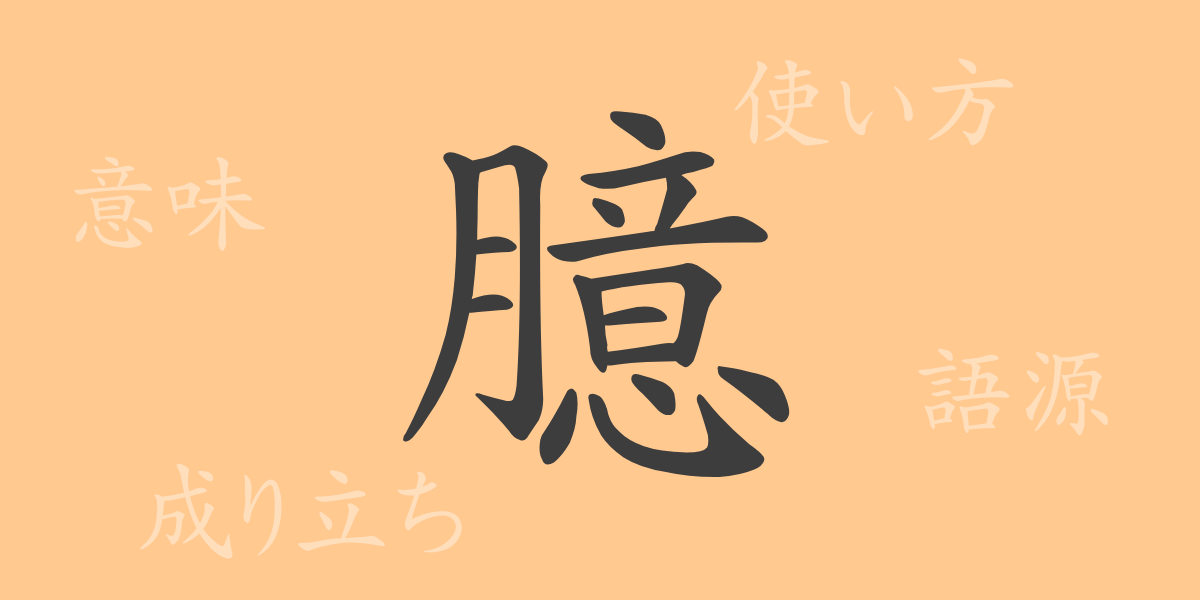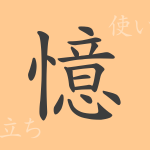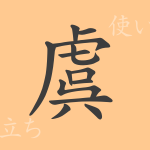“
Among Japan’s rich character culture, common kanji (Jōyō kanji) are particularly closely related to our daily lives. In this article, we will focus on the kanji “”臆”” (Oku) from among these common kanji and delve into its profound world. Let’s explore the breadth of meaning this single character possesses and how it is rooted in the sensibilities of Japanese people.
The Origin (Etymology) of 臆 (Oku)
The kanji “”臆”” (Oku) is a character that originated in ancient China. Tracing its origin, it is believed that the original form was a combination of “”肉”” (Niku), meaning human chest, and “”疫”” (Eki), which evokes illness or suffering. From this combination, it came to represent psychological states such as inner anguish or fear. Over time, this kanji became established in the Japanese language as an expression indicating the inner workings of emotions.
The Meaning and Usage of 臆 (Oku)
“”臆”” (Oku) primarily refers to mental aspects and particularly expresses emotions such as “”to fear”” or “”to hesitate.”” Words using this kanji carry a nuance of inner anxiety or hesitation, making it suitable for expressing psychological states. In sentences, the expression “”臆する”” (Okusuru) is used to convey the feeling of psychological barriers when taking action.
Reading, Stroke Count, and Radical of 臆 (Oku)
Let’s look at the reading and structural characteristics of the kanji “”臆”” (Oku).
- Reading: The on’yomi is “”おく”” (Oku), and there is no specific kun’yomi.
- Stroke Count: A total of 17 strokes
- Radical: 肉 (Nikuzuki)
Idioms, Phrases, and Proverbs Using 臆 (Oku) and Their Meanings
There are many idioms, phrases, and proverbs containing “”臆”” (Oku), each strongly reflecting psychological states or hesitation in actions. For example, “”臆病”” (Okubyō) represents an excessive fear of protecting oneself, while “”臆面もなく”” (Okumen -mo naku) describes a lack of shame. Additionally, the phrase “”臆することなく”” (Oku-suru koto naku) is used as an expression indicating a courageous attitude to take on challenges.
Summary of 臆 (Oku)
The meaning contained in a single kanji character tells the depth of its culture. “”臆”” (Oku) is also one of the important elements supporting our rich emotional expressions in daily life. By learning about the meaning and background of “”臆”” (Oku) through this article, your understanding of language will deepen further, enabling even richer Japanese expressions.
“

























